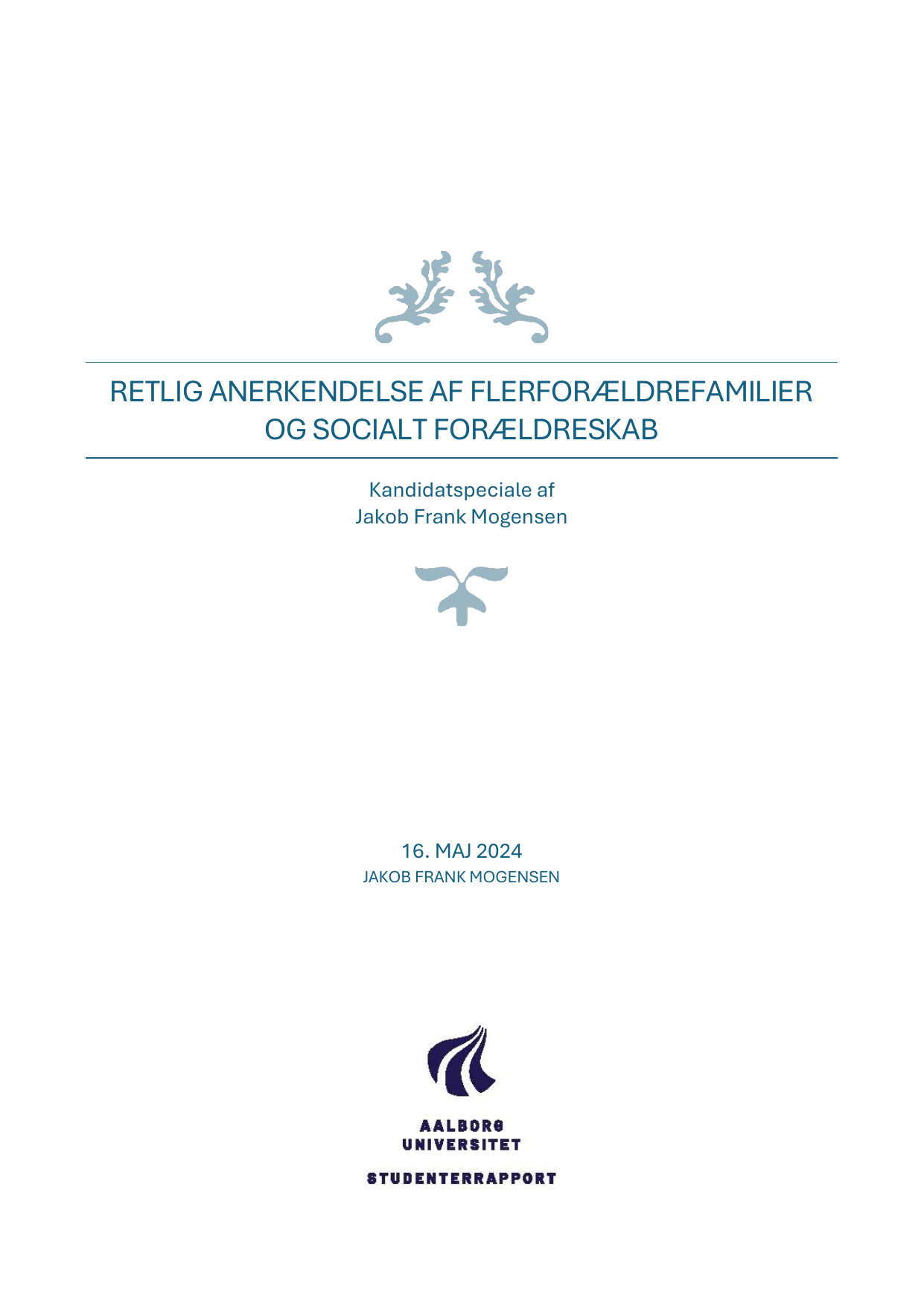
Retlig anerkendelse af flerforældrefamilier og socialt forældreskab
Oversat titel
Legal Recognition of Multi-parent Families and Social Parenthood
Forfatter
Semester
4. semester
Uddannelse
Udgivelsesår
2024
Afleveret
2024-05-16
Antal sider
76
Abstract
This thesis aims to answer the following questions: How is parenthood regulated in 2024, and how do multi-parent families fit into the current legislation? What consequences would be expected if the limitation on the number of legal parents that can be recognized was changed from 2 to 4 par-ents? And thirdly, how might a new regulation look that more effectively accommodates multi-parent families and social parents? The thesis seeks to analyze how parenthood is regulated in Danish law in 2024 and explore how multi-parent families fit into this regulation. Multi-parent families are families where more than two parents have arranged to have a child together, where they all intend to do the parenting together. In Danish law, it is only possible for two individuals to be registered as parents, which poses a prob-lem for these multi-parent families. The thesis seeks to cover the challenges multi-parent families face due to their chosen family constellation and how they on occasion are working against the word of the law to solve problems rising from the disconnect between the current regulation and their family situation. The term "social parenthood" refers to a person who functions as a parent to a child but is not legally recognized as such. The thesis primarily focuses on the intended parents meaning people who were intended to be parents to the child at the time of the conception but also discusses the legal status of unintended parents, who entered the life of the child at a later state, and how they might also be incorporated into a new regulation. The thesis seeks to examine what the expected consequences might be if the legislation was changed to accommodate up to four legal parents rather than the current limit of two. In addition, the thesis examines other possible models of legislation that aim to accommodate multi-parent families and social parents. The two primary models explored in the thesis are: absolute equality between legal and social parents and recognition of individual rights in favor of social parents. The analysis is based on the current regulation, debates of future legislation, and is supported by case law that addresses how social parenthood should be weighed against other considerations, in-cluding social versus biological parenthood, and social versus legal parenthood.
Emneord
